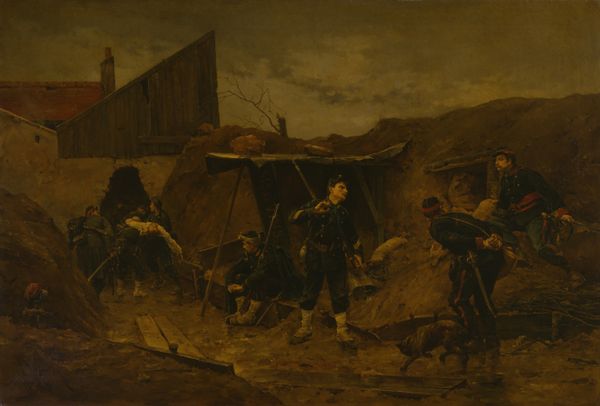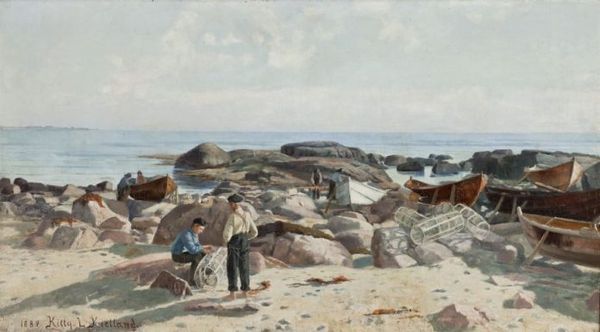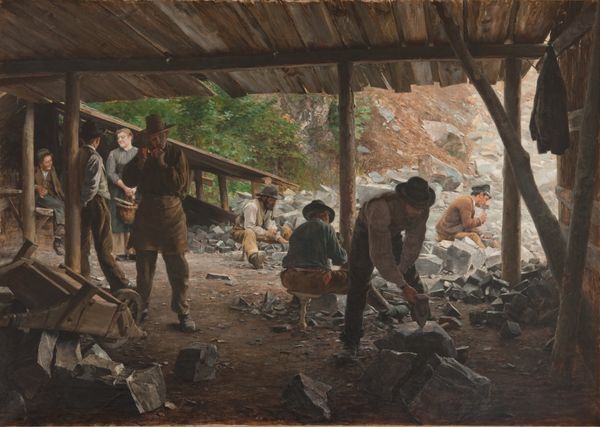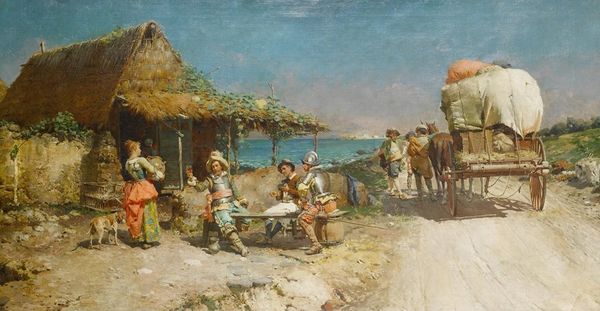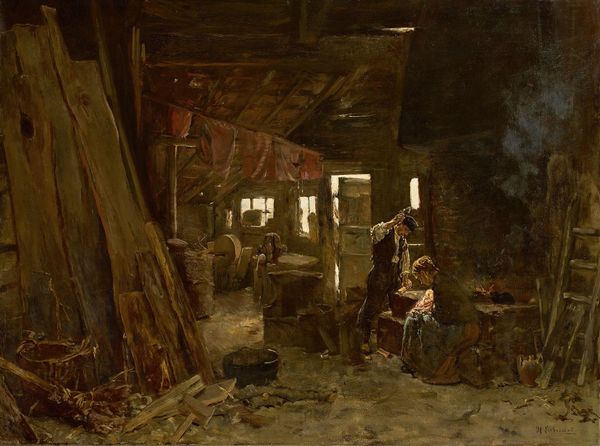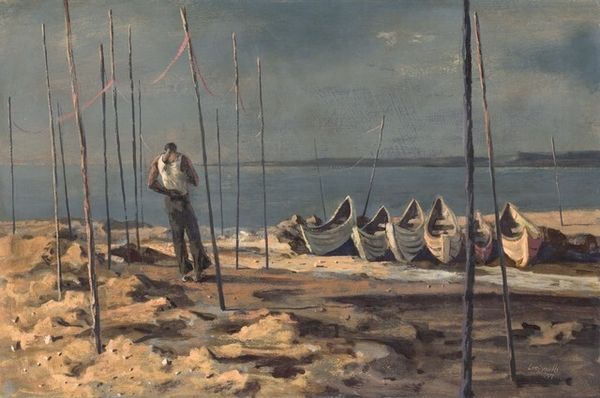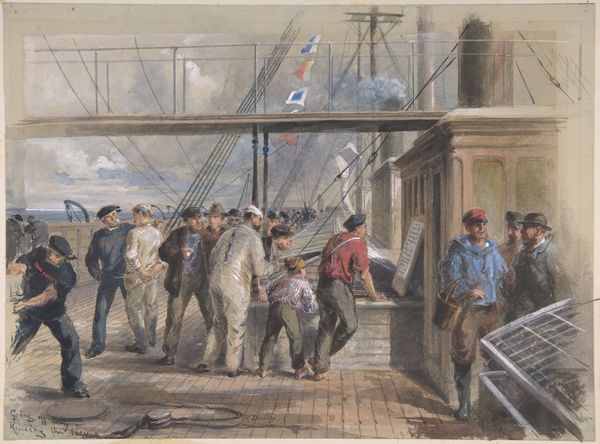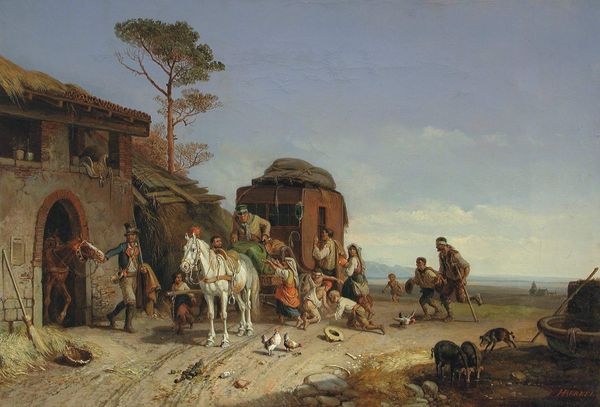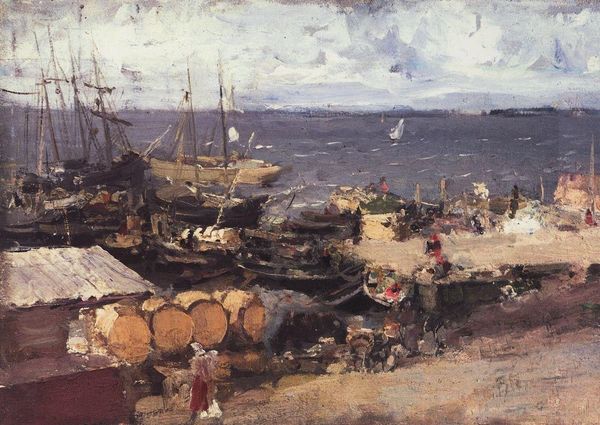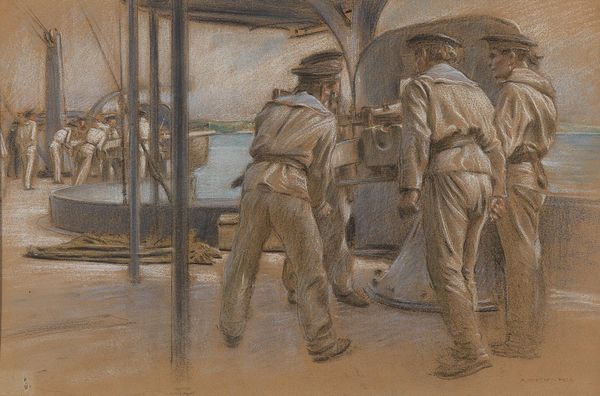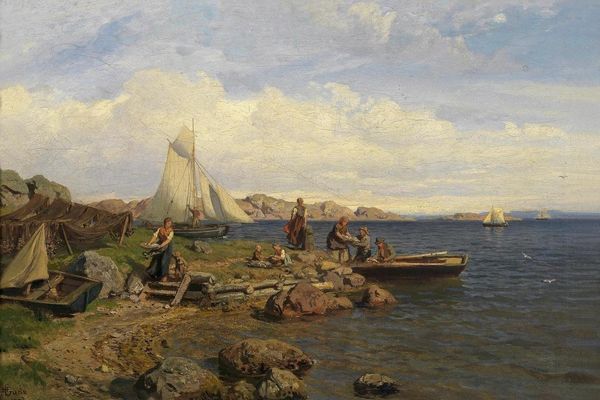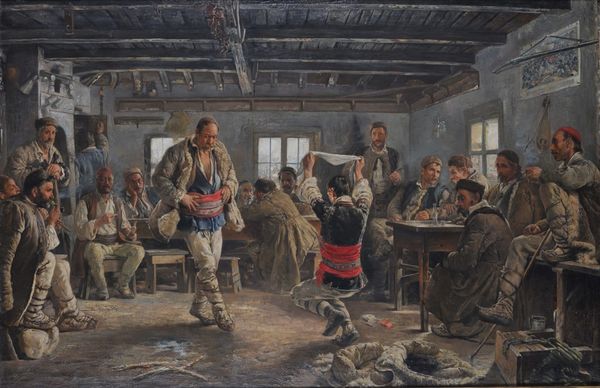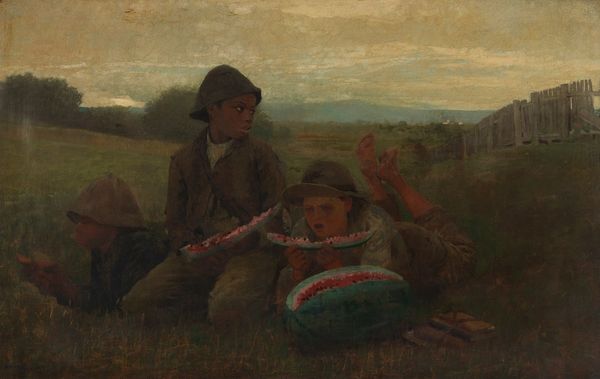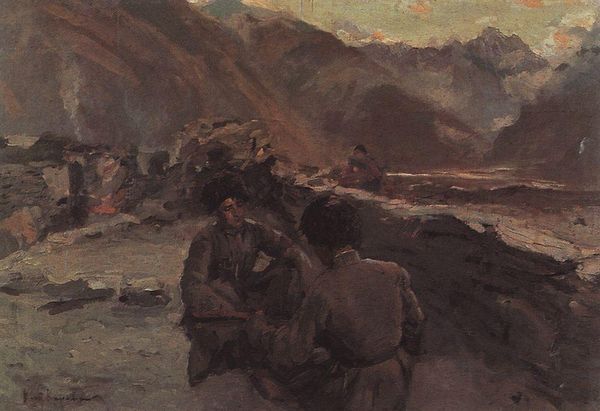
plein-air, oil-paint
#
portrait
#
plein-air
#
oil-paint
#
landscape
#
painted
#
oil painting
#
genre-painting
#
realism
Copyright: Public Domain: Artvee
Curator: Winslow Homer’s “Home, Sweet Home,” painted around 1863 in oil on canvas, presents a quiet scene from the American Civil War. Editor: My first impression is one of profound weariness. There's such a muted palette; even the green feels drained. The composition emphasizes this sense of waiting, almost stagnation. Curator: Absolutely. Homer, although working within a realist mode, wasn't just documenting. Note the symbolic resonance of the title. "Home, Sweet Home" alludes to a popular song, deeply nostalgic, particularly poignant in a context of war. The idea of "home" becomes fraught. Editor: Precisely. "Home" itself becomes a contested space when we acknowledge the divisions of the Civil War. The figures appear trapped, physically and perhaps ideologically. The encampment setting—with its ad-hoc tents and crowded figures—becomes a stark reminder of disrupted lives. What could "home" even signify amidst this displacement? The question is profoundly political. Curator: Observe too how Homer utilizes visual language. The figures are framed by a rudimentary tent; it echoes the architectural conventions of a domestic interior, albeit a temporary one. A dark kettle over a flame hints at hearth and hospitality—further reminders of what’s absent. Editor: And consider their posture. One stands with an air of dejection; the other sits, head in hand, utterly defeated. This isn't the idealized soldier; this is the human cost of conflict, rendered through Homer's incredible restraint. It reflects a society grappling with a conflict rooted in systemic inequality and political ambition. Curator: He’s certainly pushing against earlier heroic war narratives. It’s an image about the internal battle as much as the external. It resonates with universal themes of longing and belonging, or rather, the loss of it. Editor: Ultimately, this piece refuses easy answers, and its enduring power lies in its nuanced engagement with trauma and displacement, forcing us to reconsider ideas of nationalism, identity, and, yes, even "home." Curator: A very perceptive reading! Homer’s painting offers a glimpse into not only a moment of American history but into the timeless, human struggle to find solace amidst turmoil.
Comments
No comments
Be the first to comment and join the conversation on the ultimate creative platform.
